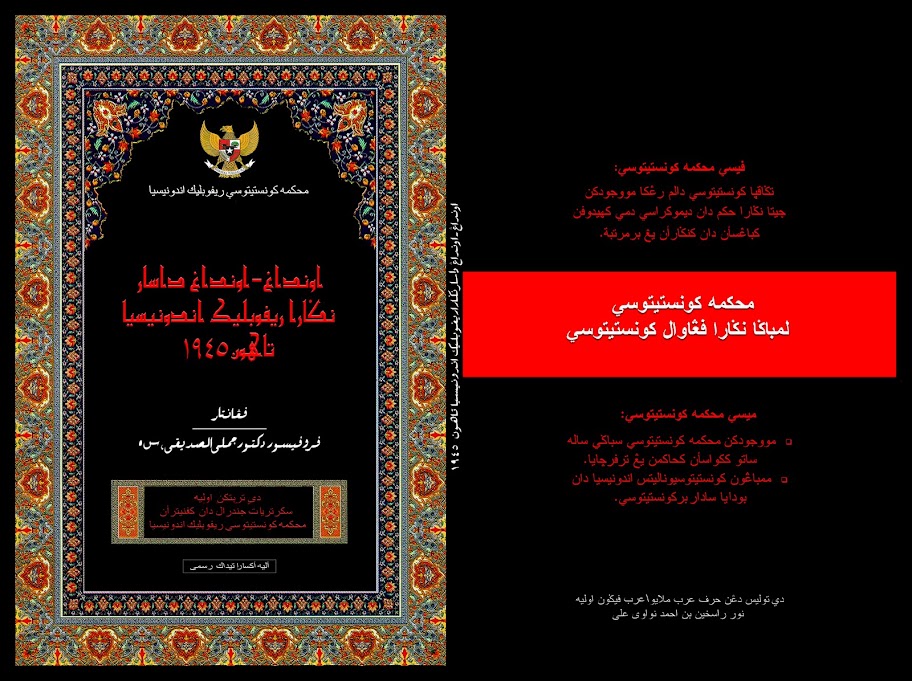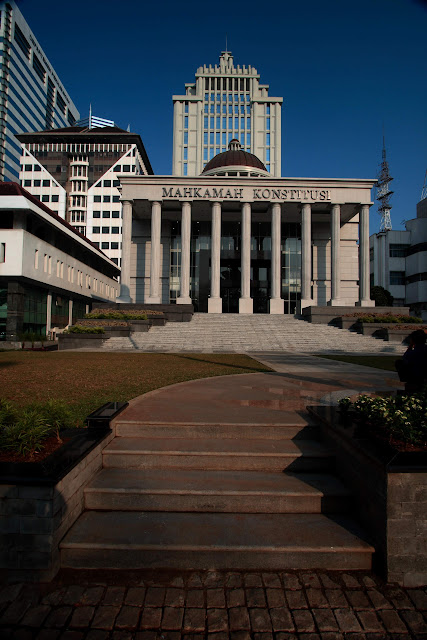|
The Case No. 32/PUU-IX/2011 on reviewing Act no. 25 of 1992 concerning Cooperatives reviewed by Muhammad Suryani, Sani Abdullah, Husien Djunaidi, and Badriah. It rejected by the Constitutional Court (MK) in the Plenary Session on Thursday (28 / 7).
In the petition, the Petitioners filed the reviewing of two articles in the Act No. 25/1995 on Cooperatives of Article 20 paragraph (1) letter a and Article 37. Article 20 paragraphs (1) a letter stating, “Every member has the obligation: a. comply with the Statutes and Bylaws and the decisions that have been agreed in the Meeting of Members.”
Article 37 states, “Approval of the annual report, including the ratification of the annual calculation, an acceptance of accountability by the Executive Board Meeting of Members.” The article according to the Petitioners violated Article 27 paragraph (1), Article 28C Paragraph (2), and Article 28D subsections (1) of the 1945 Constitution.
Against the Petitioners’ argument regarding judicial review of Article 20 paragraph (1) letter a of Act 25/1992 which according to the Petitioners violated Article 27 paragraph (1), Article 28C Paragraph (2), and Article 28D Paragraph (1) of the 1945 Constitution, the Court believes that Article 27 paragraph (1) of the 1945 Constitution, which regulates the equality of all citizens before the law and government and an obligation to uphold the law and the government without any exception, not contrary to Article 27 paragraph (1) of the 1945 Constitution because the board is also members of the cooperative that has the same duties with other members. The Court did not find any relevance of Article 20 paragraph (1) letter a of Act 25/1992 to Article 28C Paragraph (2) of the 1945 Constitution, so it is not relevant for consideration.
As to Petitioners’ argument that Article 20 paragraph (1) letter a of Act 25/1992 is contradictory to Article 28D paragraph (1), 1945, the Court considered that also did not reveal any differences of interpretation that give rise to a fair legal uncertainty with respect to Article 20 paragraph (1) letter a of the Act 25/1992, as both members and administrators are equally obliged to obey the constitution / or decisions that have been agreed.
In the case of the review of Article 37 of Act 25/1992 which according to the Petitioners violated Article 27 paragraph (1), Article 28C Paragraph (2), and Article 28D Paragraph (1) of the 1945 Constitution because it seems to give legal privileges and immunities of officials cooperative, the Court argued that Article 37 of the Act is to regulate the mechanisms of accountability to all members of the cooperative board, which, if liability is accepted by the meeting of board members freed from its responsibility of the relevant financial year.
This, according to the Court, is a logical consequence of the accountability mechanisms that have been agreed and contained in the AD / ART, because meeting the members holds the highest authority in the cooperative. If it turns out there were criminal acts committed by officials / administrators, acceptance of accountability does not lead to the abolishment of criminal liability administrators / officials concerned. Thus, according to the Court, the Petitioners’ argument that Article 37 of Act 25/1992 is contradictory to Article 27 paragraph (1), Article 28C Paragraph (2), and Article 28D paragraph (1) of the 1945 Constitution is groundless under law. Based on these considerations, “the Court rejected the petition in its entirety,” said Mahfud MD. (Shohibul Umam/mh/Yazid.tr)







